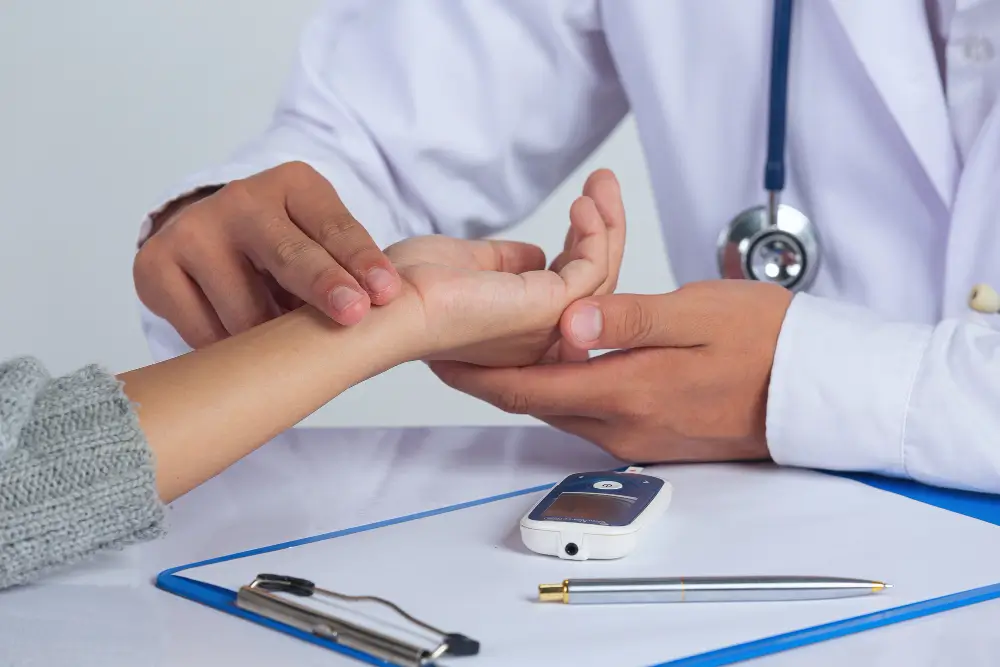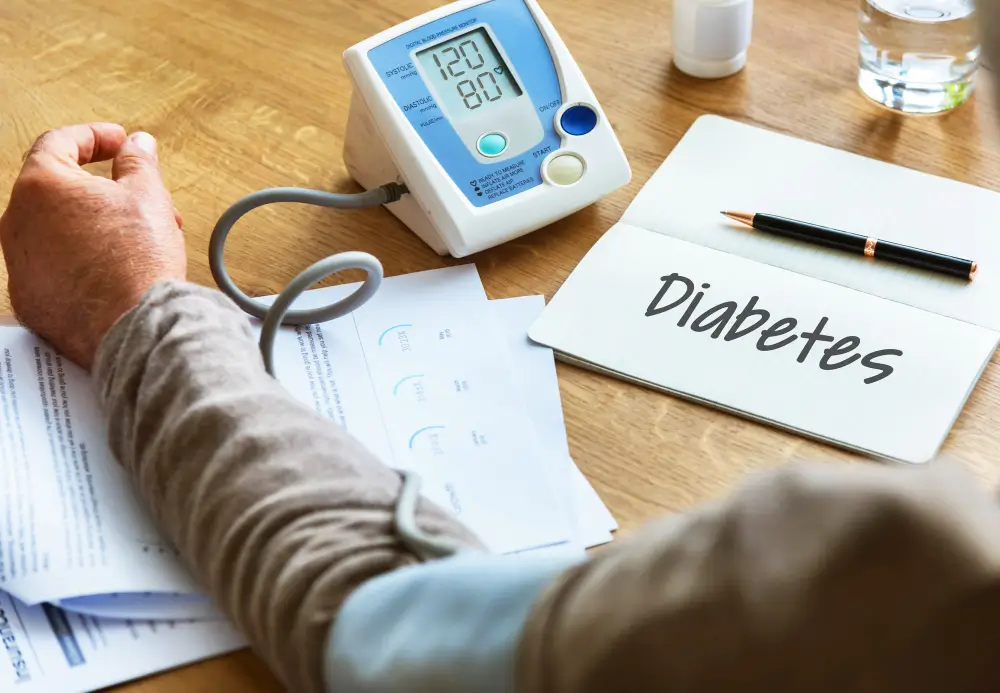Diabetes experts emphasized that diabetes is one of the most widespread chronic diseases that affects everybody, no matter their age. Good health choices are obstructed by diabetes myths and misconceptions, among them the sugar myth being the most notorious one. That is why it is very important to find out the truth about the treatment of diabetes, especially if you are newly diagnosed or have been living with it for years, and to find out where to get your treatment.
Expert Insights by Renowned and Experienced Endocrinologists: Most Common Myths About diabetes treatment in New York
Myth 1: Diabetes Is Caused Only by Eating Too Much Sugar
The myth of sugar being the only cause of diabetes is one of the most common. It’s true that excessive consumption of sugars might be one factor along the way to obesity and insulin resistance, which are the precursors of type 2 diabetes; however, the truth is that the causes are much more intricate.
In principle, type 1 diabetes is due to an autoimmune reaction whereby the immune system destroys the insulin-secreting beta cells of the pancreas, while genetic vulnerability, which is affected by lifestyle and environmental factors, is the cause of type 2 diabetes. Even people doing everything right with their diet and exercise can still have diabetes due to their genetic predisposition.
Expert Tip: Of course, proper nutrition should go along with regular exercise, but it is equally important to handle stress, rest well, and have follow-ups every now and then in a dependable diabetes clinic near me.
Myth 2: Insulin Means Your Diabetes Has Gotten Worse
Starting insulin historically has often been viewed as a failure or an indication that the patient with diabetes is “out of control.” In fact, that is a myth that all too often leaves patients not seeking the care they need.
Insulin, after all, is only a tool of treatment; it is not the punishment. Those with Type 1 diabetes rely on insulin from the very beginning. For Type 2 diabetes patients, a doctor might suggest insulin if oral medications and lifestyle changes do not maintain their blood sugar within healthy levels adequately.
The insulin therapies of today are much more user-friendly and safer than the ones back then. In fact, most endocrinologists in New York would say that, in a timely manner, insulin therapy can protect diabetic patients from serious complications such as nerve damage, kidney failure, and problems with
Myth 3: You Don’t Need to Monitor Blood Sugar If You Feel Fine
Experiencing “normal” does not imply that the sugar level in your blood is not changing. Generally, diabetes is a major disease that does not make you go through any symptoms; your blood sugar may be changing very much and yet you may not feel it. And without proper monitoring, you could be putting yourself at a higher risk of complications later in life.
On one hand, it will let you monitor your progress by tracking the glucose level; on the other hand, it will put the doctor in a position where he can modify your treatment if need be. Most diabetes clinics in New York have embraced the use of new technologies such as Continuous Glucose Monitoring, or CGM, systems. This, in fact, makes the whole process easy and convenient.
Remember: Most importantly, you should always be aware of the fact that continuous monitoring means that you are the one responsible for managing diabetes and avoiding complications, which will not be easy to deal with at any time.
Myth 4: Once You Start Medication, You Can’t Stop
It is a lifelong disease process; treatment plans, however, do change over time. Some may have needed medication for the disease, but through big behavioral changes in concert with medical supervision, they have been able to lessen or completely eliminate their medications altogether.
As such, endocrinologists remind their patients that medications are not lifetime labels but merely aids devised to assist a person in the proper management of his or her blood sugar until the body becomes better equipped to carry out the task for itself.
Most of the diabetes treatment in New York would favor their patients adopting healthier ways of living through better eating and exercising; these habits also lower stress and may result in decreased use of medications over time.
Myth 5: All Diabetes Treatments Are the Same
Another falsehood claims that all diabetes therapies are alike for everyone. As a matter of fact, treating diabetes is highly individualized. What works quite well in one person may not work well in another.
Such specific treatments by the endocrinologist are tailored to meet the unique needs of each patient, and they are as follows:
- Type of diabetes: Type 1, Type 2, or gestational
- Age and overall health
- Blood sugar patterns and lifestyle
- Presence of other health conditions
Major clinics like Patients Medical in New York work toward the treatment of the condition through medication, nutrition guidance, reduction of stress, and hormonal balance, among others. The objective is for their patients to achieve optimum wellness in the long run.

The Modern Approach to Diabetes Treatment in New York
New technologies, combined with integrative care, have dramatically changed the landscape in which diabetic conditions are treated in New York. Some of the innovative treatment options now available for diabetic conditions include:
- Devices of Continuous Glucose Monitoring
- Telemedicine consultations for easy follow-up
- Nutrition and exercise programs designed just for you
- Comprehensive care for the feet and eyes of diabetics
Whether somebody is searching for a ‘diabetes clinic near me‘ or specialized endocrinologists, proper care certainly makes all the difference in effectively managing the condition.
Final Thoughts
Diabetes is a condition that can be controlled; it has to be, if the right knowledge, tools, and professional support are available. Debunking the most common myths is the first step towards health promotion and prevention of complications.
If you are after progressive, individualized diabetic care, or if your relative needs treatment here in New York, then book a consultation with Patients Medical. A bunch of proficient endocrinologists and wellness specialists blend the advantages of cutting-edge medical science with holistic therapies to assist each patient in establishing a healthier, more balanced lifestyle.
Frequently Asked Questions (FAQs)
Q. What is the best diabetes treatment in New York?
Ans. Diabetes treatment in New York consists of drugs, lifestyle changes, and regular check-ups. Medical centers like Patients Medical guarantee that the cure is personalized and suited just for that patient’s specific requirements.
Q. How can I find a good diabetes clinic near me?
Ans. You may use the Internet to find a ‘diabetes clinic near me‘. However, thereafter, do make sure they have reviews, board-certified endocrinologists, and comprehensive treatments available. Virtual and in-office consultations at Patients Medical in NYC are also available.
Q. Can diabetes be reversed with treatment?
Ans. Similar to other autoimmune diseases, Type 1 still has no known cure. Most of the Type 2 diabetes cases can be managed with a proper diet and exercise; some are even put into a long-term remission under medical supervision.
Q. What are the latest advancements in diabetes treatment?
Ans. Indeed, new technologies like continuous glucose monitoring, insulin pumps, personalized nutrition, and telehealth-based care have emerged.
Q. Why should I choose Patients Medical for diabetes treatment?
Ans. Patients Medical marries current endocrinology with integrative wellness programs that provide sustainable health improvements in managing diabetes.
Start Your Wellness Journey Today:
- Call 212-794-8800 to schedule your consultation
- Email us at info@patientsmedical.com for more information
Visit PatientsMedical.com to apply or learn more about our programs

Dr. Kulsoom Baloch
Dr. Kulsoom Baloch is a dedicated donor coordinator at Egg Donors, leveraging her extensive background in medicine and public health. She holds an MBBS from Ziauddin University, Pakistan, and an MPH from Hofstra University, New York. With three years of clinical experience at prominent hospitals in Karachi, Pakistan, Dr. Baloch has honed her skills in patient care and medical research.





